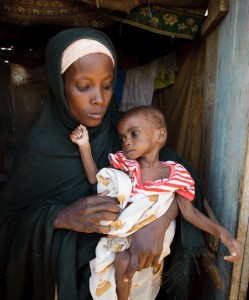In Noah’s day, our just God was moved to extreme action because humankind had degenerated into a pervasive, consuming violence (Genesis 6:11-13). In 21st century America, this would no longer seem to be the case. The vast majority of America’s citizens enjoy the benefits of what we call civil society, based upon a Judeo-Christian ethic and trusting in the rule of law, prosperity, and the promise of technology. It would seem that we have risen above the violence that permeated Noah’s world.
We think of ours as a non-violent, civil, and just society… Outwardly, our land certainly appears to be non-violent and civil. But how just is it? Consider that we are by far the wealthiest nation on the planet, yet precious few share even 1% of their incomes towards solutions for those who suffer the brutal realities of extreme poverty. Can it be considered in any way “just” when those who have the ability to help those in desperate need decline to do so?
“just” when those who have the ability to help those in desperate need decline to do so?
As Eugene H. Peterson, translator of The Message, puts it: “Justice is a serious gospel-prophetic mandate.” How serious? In Ezekiel 16:49, God warns His people, “Now this was the sin of your sister Sodom: she and her daughters were arrogant, overfed, and unconcerned; they did not help the poor and needy.”
Many have used the word “apathy” to describe our collective lack of response to the problem of extreme poverty. Here’s a point to ponder: is not apathy towards the desperately needy just as violent in its effect as the more apparent forms of violence that we see in ethnic conflicts, sectarian strife, and terrorism? For hundreds of millions of people, the end result of extreme poverty is strikingly similar – daily suffering in the extreme sense, innocent victims, diminished dignity and hope, and in the end, loss of life itself. Though apathy may lack the intentionality inherent in violence, the human impact is much the same.
God has promised to never again send the floodwaters to destroy all creation. Still, the practice of apathy, as violence, comes with divine consequences…
May we take to heart God’s counsel, given in Isaiah 58 (vs. 4b-8):
You cannot fast as you do today and expect your voice to be heard on high. Is not this the kind of fasting I have chosen: to loose the chains of injustice and untie the cords of the yoke, to set the oppressed free and break every yoke? Is it not to share your food with the hungry and to provide the poor wanderer with shelter – when you see the naked, to clothe him, and not to turn away from your own flesh and blood? Then your light will break forth like the dawn, and your healing will quickly appear; then your righteousness will go before you, and the glory of the Lord will be your rear guard.
If you found this post meaningful, please share it with a friend.
Richard Stearns, in his landmark book The Hole in Our Gospel, paraphrases Augustine when he writes, “…it is not our fault that people are poor, but it is our responsibility to do something about it. God says that we are guilty if we allow people to remain deprived when we have the means to help them.”
We have the awareness, the resources, the ability…. the only remaining question is, will we share?